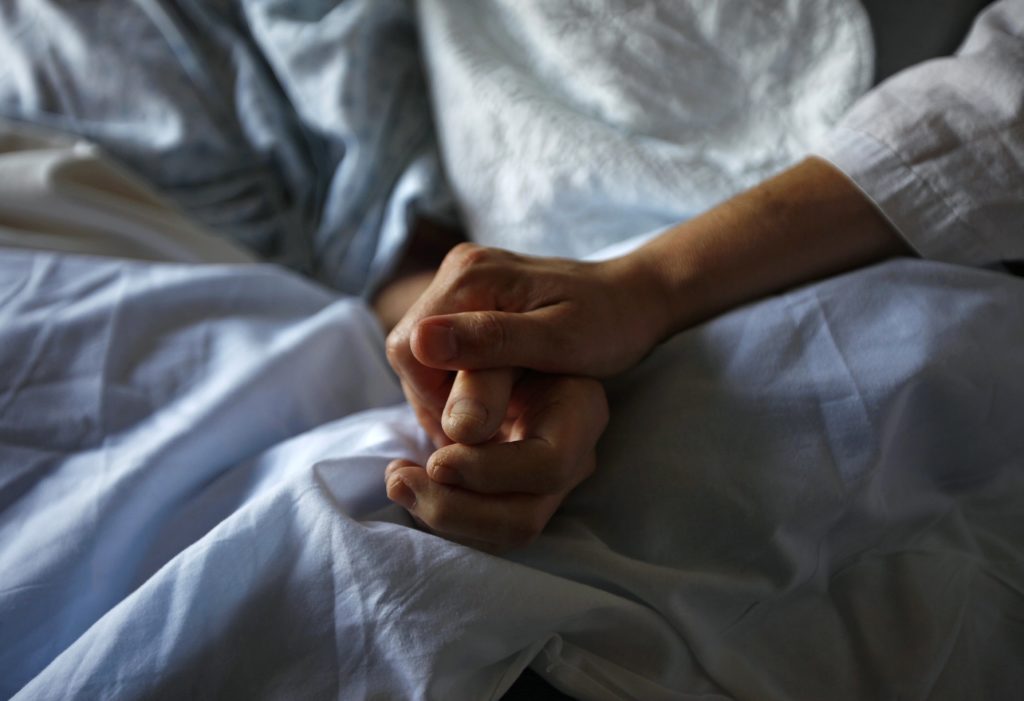Evidence is mounting that assisted suicide's introduction into the Canadian medical system is not only undermining governments' oft-stated plans to improve palliative care but is actively damaging the country's already inadequate palliative care system. Some patients are choosing to die rather than to continue to live without adequate palliative care.
Dr. Neil Hilliard, a palliative care expert from Abbotsford, British Columbia, said health facilities' introduction of assisted suicide into palliative care wards and hospices, following legalization of Medical Assistance in Dying (MAiD) in June 2016, has led to a reduction in true palliative cares services.
"It's like a cancer growing within the palliative care programs," said Hilliard who, in 2017, resigned as medical director of the Fraser Health Authority's palliative care program because of his opposition to the authority's insistence that he support the performing of assisted suicide in hospices.
"(MAiD) is starting to take over to a certain degree. But still only 5% of people are choosing MAiD; 95% would prefer to live well until they die naturally."
The Catholic Church has long supported palliative care for patients living with a life-threatening illness and has branded euthanasia or medically assisted suicide as an "intrinsically evil" act.
Hilliard's comments support recent testimony from two of Canada's leading palliative care physicians to a Special Joint Committee of Parliament that is reviewing the country's assisted suicide legislation.
Dr. Leonie Herx, head of palliative medicine at Queen's University in Kingston, Ontario, and immediate past president of the Canadian Society of Palliative Care Physicians, testified April 25 that only 30%-50% of Canadians who need palliative care have access to it, and only a "very few," or about 15%, have access to specialist palliative care.
"When patients' palliative care needs are not met, the ensuing physical, emotional and spiritual suffering can lead to them feeling depressed, hopeless, and a burden to others -- many of the factors driving requests for MAiD," Herx said. "Earlier palliative care can alleviate suffering before it becomes irremediable."
She pointed out that in its landmark 2015 Carter v. Canada decision, which legalized assisted suicide, the Supreme Court of Canada discussed what possible impacts implementing a law for assisted death prior to securing universal access to palliative care might have on the development of a strong palliative care system.
"With almost six years of lived experience now, we have seen significant deleterious effects of the impact of MAiD implementation on palliative care, including diminished resources and increasing distress experienced by palliative care clinicians," Herx said.
She said some health authorities' incorporation of euthanasia into palliative care has led to palliative nurses leaving their jobs because they felt unable to provide palliative care. And in Ontario, for example, some hospice palliative care nurse practitioners are using their full-time paid palliative care roles to provide assisted suicide.
Moreover, there is "increasing moral distress in palliative care clinicians from forced participation in MAiD due to some health authorities mandating that MAiD be provided in hospices and palliative care units or lose funding," she said. "This is resulting in retention difficulties and early retirements from palliative care, which is accentuating and accelerating the already critical shortage of specialist and generalist palliative care physicians."
As well, "palliative care clinicians are having to spend a significant amount of time on administrative issues related to MAiD, which takes away from being able to provide palliative care," Herx said, adding that there is "decreased access to specialized palliative care beds when health authorities require hospices and palliative care units to admit patients for the sole purposes of administering MAiD."
Another consequence of adding assisted suicide to palliative care is that some patients are unwilling to access palliative care services because they associate it with assisted suicide and are afraid palliative care will hasten their death or euthanasia will be provided without their consent.
"Currently, Canadians have a right to medical assistance in dying, but not to medical assistance in living," Herx said. "Having accessible, high quality palliative care needs to be a universal health care right in Canada."
Dr. Ebru Kaya, president of the Canadian Society of Palliative Care Physicians, told the parliamentary committee April 28 that assisted suicide needs to be "distinct and separate" from palliative care to ensure that the latter does not suffer.
"By separating them, palliative care can continue to be the safeguard, as intended," Kaya said. "MAiD assessors and providers are in a conflict of interest if providing palliative care at the same time. This does not prevent palliative care physicians from practicing MAiD -- however they should not be providing palliative alongside MAiD for the same patient."
She continued: "We urgently need investment in palliative care programs that are administered and funded separately from MAiD, so that we are not competing for the same resources. Many programs have had to divert their already scarce resources to support MAiD services. This has made it even more challenging to provide palliative care when there are dire shortages in palliative care experts from coast to coast and, as a result, patients are even less likely to access palliative care."

